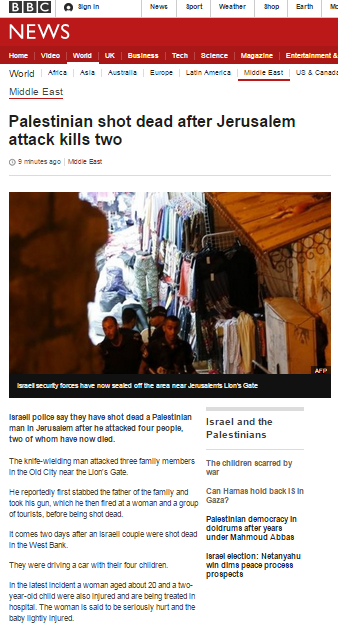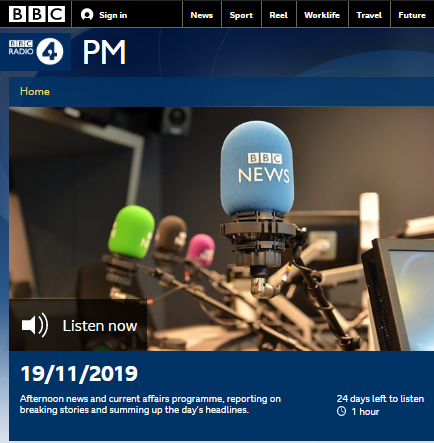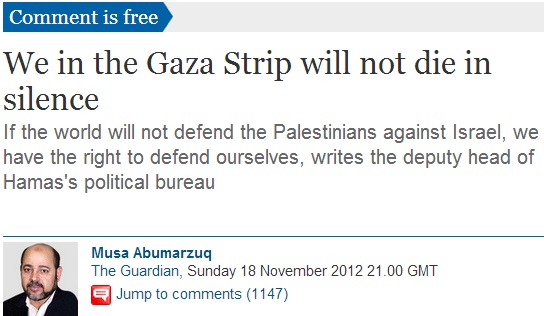On January 13th the BBC World Service Twitter account promoted an interview broadcast on its radio station with Abdelkrim Branine of the French radio station Beur FM.
During the interview (available here) the BBC presenter asked Branine about the participation of France’s Muslim community in the January 11th march.
“How would you describe your listeners’ emotions? Are they being forced to agree with French republican values? Do they feel that that’s something they can easily do? Can you describe that for us?”
Among the various reservations about participation in the march cited by Branine in response to that question was the following:
“After that there is a problem with some guest at this march like the prime minister of Israel Binyamin Netanyahu who is considering by a group of the population – and the Muslim too – like a criminal war.”
In the version of this interview promoted by the BBC World Service on Twitter there is no sign of the programme’s presenters having made any effort to clarify to listeners that there is no factual basis for Branine’s branding of the Israeli prime minister as a war criminal.
The BBC’s editorial guidelines on live content include the following:
“If we broadcast anything that harms the reputation of an individual, a group, or an organisation we may be sued for defamation. The risk exists whether the defamatory statements are scripted or spoken off the cuff. Subject to the defence of innocent dissemination (the “live defence”), the BBC can be liable, as broadcaster, regardless of who makes the defamatory comments. Any potential defamation problem should be dealt with immediately by referring the matter to Programme Legal Advice. It may be appropriate for the presenter to attempt to defuse the situation and distance the programme from the defamatory remarks. Depending on the circumstances, an apology or correction may also be appropriate but when dealing with a potentially defamatory situation advice from PLA must be sought before any action is taken. An inappropriate apology or correction could exacerbate the defamation or create a new one.” [emphasis added]
Additional editorial guidelines expand on the issue.
And yet, not only was no effort made to distance the BBC from that defamatory statement during the broadcast itself, but the segment was subsequently further promoted on social media to additional audiences.




